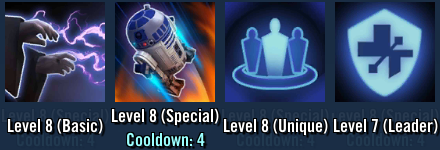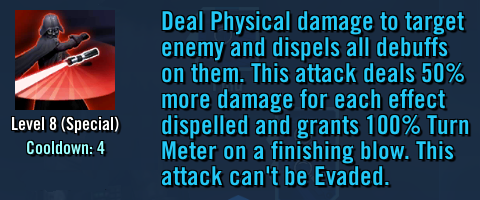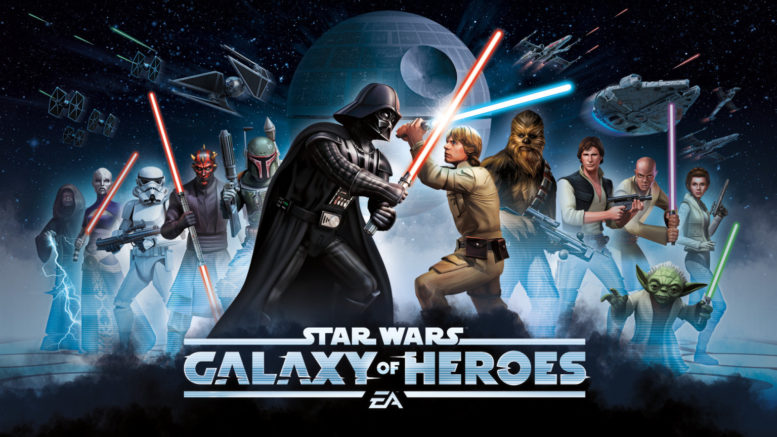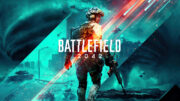The driving force in SW:GoH battles is abilities. No matter how fast a character is, or how much damage they can take, using the right move at the right time is key to success. In order to choose the right move, you need to know what it does. This isn’t generally a hard thing to do, you just need to find the relevant information and understand what it means. The key to doing so is breaking down the description and distilling it into easy to digest information.
Ability Types
There are four different types of abilities in Star Wars: Galaxy of Heroes – basic, special, unique, and leader. Each of these serves a different general purpose.

- Basic Ability – The basic ability of a character. Has no cooldown, and generally has minimal effects.
- Special Ability – Advanced ability, generally has more varied effects and a cooldown. Not always an offensive ability.
- Unique Ability – Passive abilities which are active as long as the character is alive. Sometimes effects other characters as well.
- Leader Ability – Passive ability which is only active if the character is set to squad leader.
The In-Game Description
The in-game description of each ability contains most of the relevant information. Using Darth Vader’s special ability Culling Blade as an example, we can see how this description breaks down.

The important information from the description is as follows:
- Deal Physical damage to target enemy
- Dispels all debuffs on them
- Deals 50% more damage for each effect dispelled
- Grants 100% Turn Meter on a finishing blow
- This attack can’t be Evaded
Most of the description is straight forward – damage type and target, special effects and conditions. Notably, Culling Blade can’t be evaded, which means it will never be dodged, even if the enemy has the foresight buff. Abilities labelled as “can’t be resisted” are the same – the target(s) cannot resist the debuff if it triggers. On top of this, we can see that it’s a special attack with a four turn cooldown.
Checking The Damage Output
So we know what it does now. Simple enough to follow, just read the description. But how do we know how much damage it will do?
Keeping with the Culling Blade example, let’s head over to swgoh.gg and take a look at the damage multiplier. If we go to the Darth Vader page and click on Culling Blade, it will show us more information – including the damage multiplier, labelled as “modifiers”.
In the case of Culling Blade, the level 8 multiplier is 2.26, 326%. This multiplier is used on the relevant damage stat of the character to determine the base damage of the attack. Critical hit damage is applied after this, multiplying the final damage amount.
Going Deeper
If you want to take it a step further and see more details about the mechanics of a move, swgoh.gg has a handy “View Mechanics” link above the level table of each ability.
This section can get very confusing, very quickly, but with some practice, it’s easy enough to make sense of it. Once you get the hang of the parent/child structure and the way variables are designated, everything else starts falling into place. I’m not going to go into great detail here, because it’s rarely needed, but we’ll look at how the bonus damage of Culling Blade works.
The wording “deals 50% more damage for each effect dispelled” is a little ambiguous, so we want to find exactly where and how it’s applied. On the mechanics page for Culling Blade, the last entry is “damage,” which is what we’re after. The entry reads “Deals 326% of the attacker’s Physical Damage to target(s) with an additional 50% on top for each CONTEXT_VALUE in previous effect”
We know the 326% is the base modifier, and we now know it has 50% added to it for each debuff dispelled. So two debuffs would make it 426% of Darth Vader’s physical attack stat, three would make it 476%. In other words, the 50% bonus damage is additive, and added before any other multiplying occurs. The CONTEXT_VALUE just points to a previously created variable, in this case, the number of debuffs dispelled.





